An American Tragedy
Composer
Tobias Picker
Premiere
The Metropolitan Opera • 2005
Commissioned by
The Metropolitan Opera
Based on a true story, Theodore Dreiser's novel An American Tragedy is one of American literature's great, universal subjects. The central character Clyde Griffiths is Everyman, and his dilemma is at the heart of the American experience, then as well as now. The people upon whom Dreiser's characters were based also echo throughout the pages of the entire opera. The heartbreaking handwritten letters of Grace Brown, the tragic real life factory worker Dreiser brings us so painfully close as they are projected onto the stage in all their endless optimism and sorrow.
Philadelphia Inquirer
“The work’s theatrical good sense is remarkable. The first act establishes a comfort zone by making obvious points in broad strokes. But Act II delivers exactly what you don't expect: scenes that gain tension by growing softer as they head toward emotional climax. Few modern operas are paced as effectively as this.”
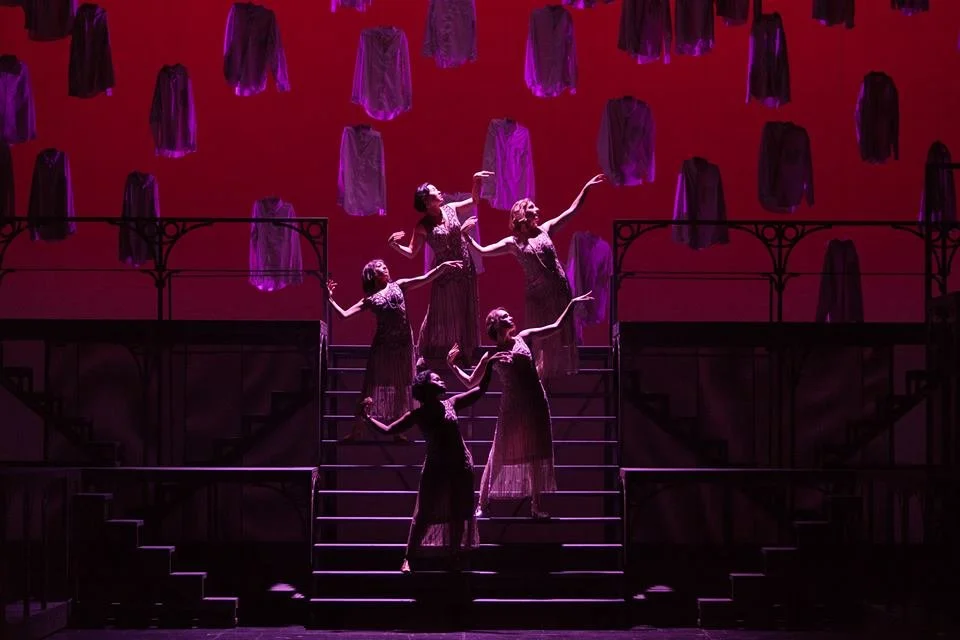
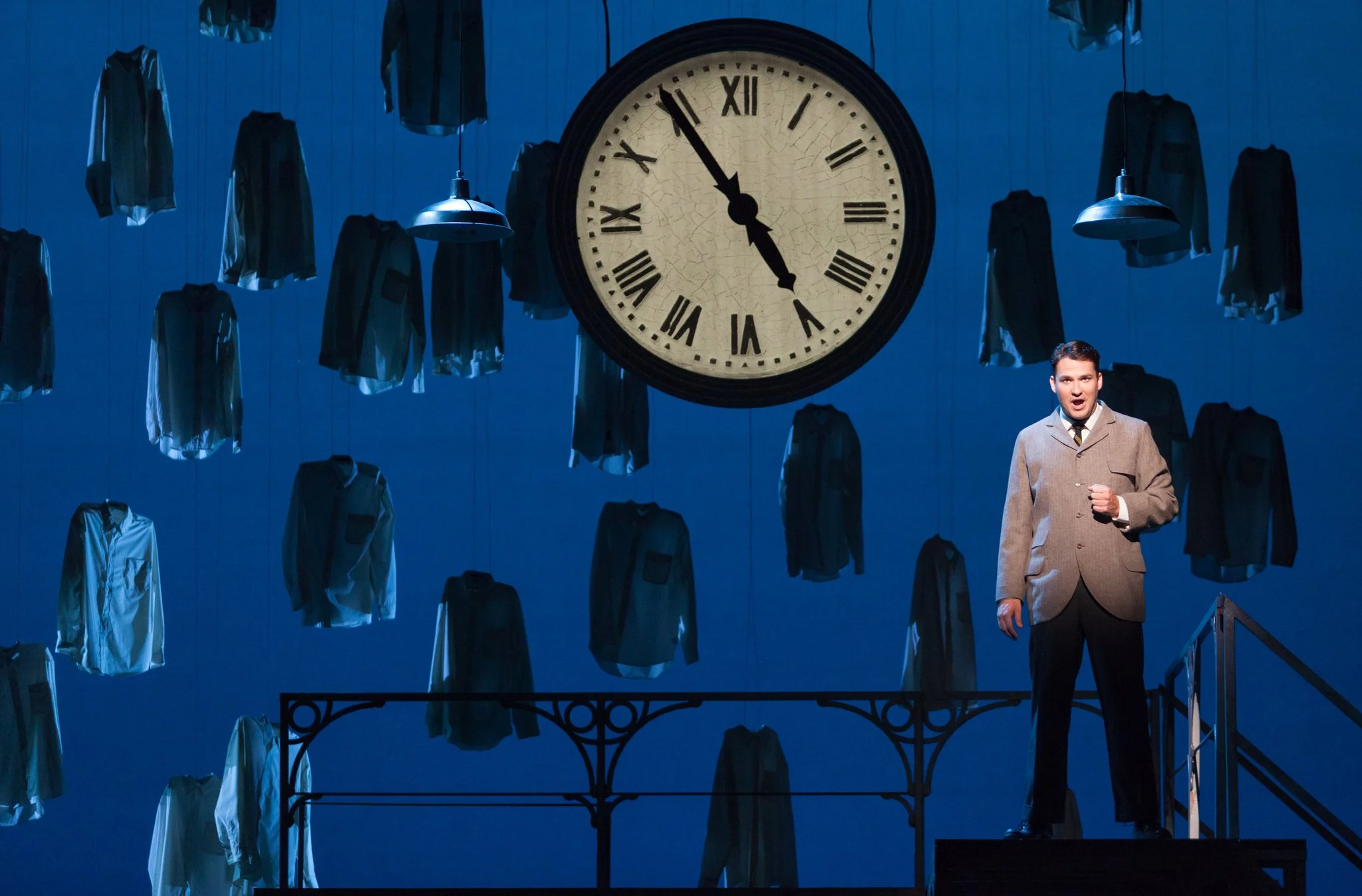
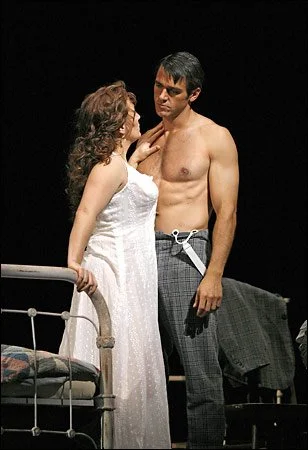
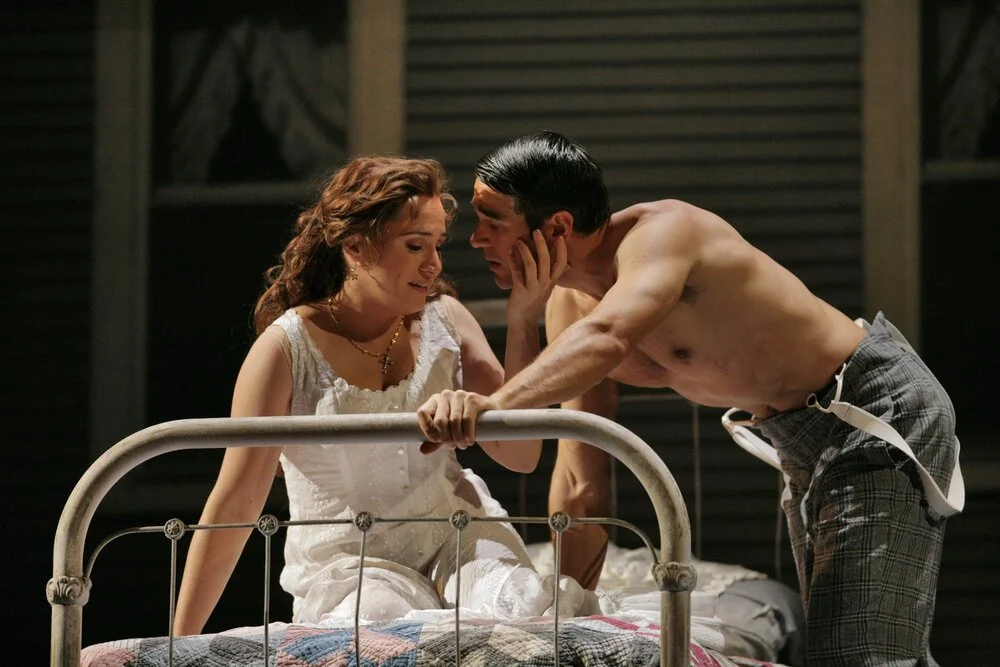
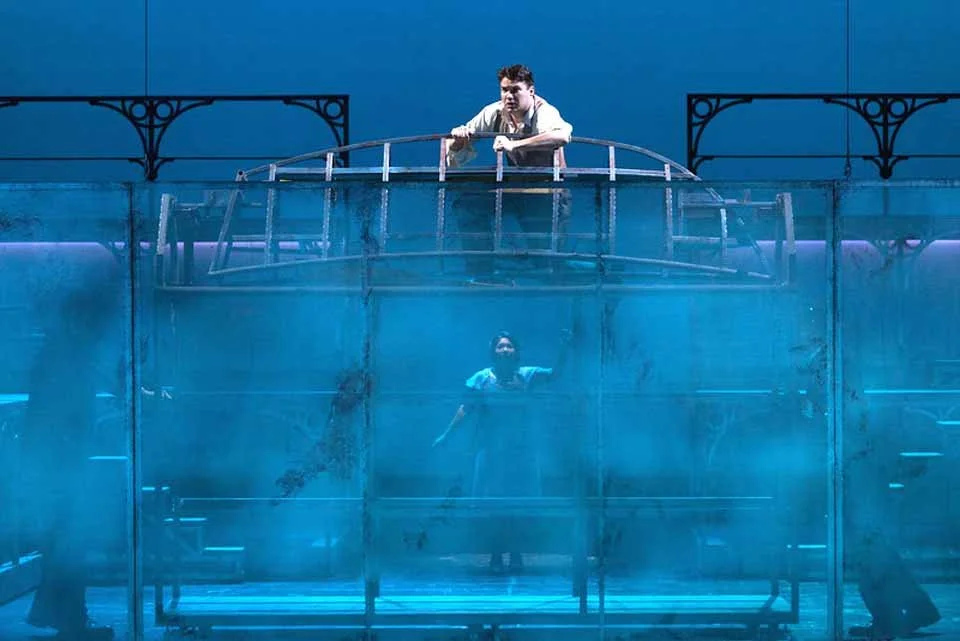
Photos by Karli Cadel (Glimmerglass Festival), Ken Howard (The Metropolitan Opera)
Previous Performances
The Metropolitan Opera, 2005
Santa Monica College Opera Theater, 2010
Glimmerglass Festival, 2014
Critical ACCLAIM
— The New Yorker
Metropolitan Opera • 2005
“On a primal, Pucciniesque level, the opera hits the mark. Scheer, the librettist, sleekly condenses Dreiser’s eight hundred and fifty pages… Funny how this Gilded Age melodrama, in which obscene wealth warps the morals of all, anti-abortion laws drive young people to desperation, and capital punishment is handed down without clear physical evidence, is not quite as dated as it should be.”
— The New York Times
Metropolitan Opera • 2005
“Yet this opera, at nearly three hours, holds your attention and conveys the story. Mr. Scheer's libretto must necessarily compress Dreiser's complex 900-page novel, with its long ruminations on status, envy and compulsion. But the essential elements are there. The cast seemed to relish it, and that says much in its favor. An American Tragedy is an effective piece – critics and opera buffs who want the Met to do its part to make opera a living art form have to be heartened that it presented this work, and that an audience on Friday gave a prolonged ovation.”
— New York Magazine
Metropolitan Opera • 2005
“Scheer has compressed Dreiser’s plot skillfully, retaining most of the essentials – in some ways more faithfully than the two films based on the novel. Even audiences unfamiliar with Dreiser’s book will have no trouble following the action… the narrative clarity is a definite plus.”
— Variety
Metropolitan Opera • 2005
“Trimming Dreiser’s nearly 900-page 1925 novel down to the requirements of the operatic stage is a task admirably accomplished by Gene Scheer’s libretto. Scheer has wisely kept most of the action around 1906, the year in which the events that inspired Dreiser took place. By streamlining the central story and details, Scheer has constructed a tight libretto. The fast, unifying flow of the opera’s 15 scenes is thus assured, as is the opportunity to depict two or more events occurring in different places and even at different times. This system also allows for a stunning coup de theatre…”
— Philadelphia Inquirer
Metropolitan Opera • 2005
“The work’s theatrical good sense is remarkable. The first act establishes a comfort zone by making obvious points in broad strokes. But Act II delivers exactly what you don't expect: scenes that gain tension by growing softer as they head toward emotional climax. Few modern operas are paced as effectively as this.”
— Los Angeles Times
Metropolitan Opera • 2005
“The production is handsome and sure – Gene Scheer’s libretto is literate and considerate of composer, singer and audience.”
Feature Coverage
— Playbill
The Long Journey to Opening Night
“In addition to working from Dreiser's novel, which, clocking in at about 900 pages, is a daunting task in and of itself, Picker's librettist, Gene Scheer, also did extensive research on the real-life story and subsequent trial, culling information as he could from newspaper accounts, letters, and trial transcripts. After numerous treatments and libretto drafts over the course of four years, Scheer succeeded in turning this mountain of material into a tight two-act, two-and-a-half hour libretto. Picker began writing the music after the libretto's second or third draft. ‘It's Gene's words in the libretto that bring the music forth,’ he says. ‘They're the water and the earth and sun that make the flower grow. There are demands that the musical structures make on the text, and demands that the text and the structure of the text make on the music, that have to be worked out so that the whole thing is architecturally and musically and emotionally satisfying.’”
